This platform aims to provide TVET stakeholders and practitioners with information on free-to-use toolkits that are available online. The purpose of such toolkits ranges from facilitating TVET providers' 'self-reflection' on aspects of their provision to quantitative performance assessments. Some toolkits have a thematic focus (e.g. on digitalization or greening) whereas others have an organizational focus. For some themes, there are multiple toolkits, for example to assess and/or reflect upon teacher/trainer training needs. The purpose of this database is to bring the many and varied toolkits into one place and to provide a guide and resource for:
In the table below, you can find a summary of the toolkits and a link to each one.
 Click here for more information
Click here for more information
Key Questions Synthesis Overview
1. How has a toolkit been defined?
A toolkit is defined as a resource or group of resources which support TVET providers to self-assess and/or to support their development in improving their organization and/or TVET provision and delivery. Toolkits comprise a range of ‘tools’ from checklists, to training resources, to assessment questionnaires. These tools may be presented in an online interactive format (such as the EU’s SELFIE) or designed for providers to work with on their own.
2. What are some similarities and differences between them?
The toolkits vary in length, target audience, theme, tools used and geographic region. Some toolkits are industry specific while others are more general and focus on various industries in TVET. The toolkits have been produced by a wide variety of publishers from around the world, some with a regional focus and others with a global focus. All the toolkits in this repository have undergone a review process using criteria related to relevance, date of publication, toolkit usability, and accessibility.
3. What are the topics and themes of a toolkit?
The toolkits are categorized by geographic region, tools, target groups, thematic areas and the UN’s Sustainable Development Goals (SDGs) as listed in the filtering menus.
4. Who are these toolkits for?
The primary target group for each of the toolkits are TVET providers and practitioners. Some are specific to a TVET pathway, for example, there are multiple toolkits for apprenticeships. Other toolkits are occupationally specific, for example, there are toolkits to identify new skills needs in the hospitality and tourism sector which may be useful for labour market partners. The database includes toolkits designed to support TVET in the absence of a strong TVET policy making sector (e.g. the toolkits created for practitioners in developing countries). The table of toolkits links to a summary description for each toolkit included.
5. What does a toolkit contain?
A toolkit contains various materials. In some examples, the toolkits are designed to be ‘diagnostic’ in their nature – to identify strengths and weaknesses of a TVET provider and its provision. Others are designed to stimulate reflection and to prepare action plans. There are also examples of toolkits which include training materials. The toolkits can contain a single tool, such as a self-assessment, or multiple tools, such as best practices, recommendations and templates. Sixteen different types of tools can be found on the online repository, including assessments, best practices, case studies, checklists, frameworks, guidelines, interviews, online resources, recommendations, research, samples, surveys, templates, website, worksheets and workshop agendas.
6. How were the toolkits selected?
The toolkits were selected using a decision matrix following the initial research and collection of TVET toolkits. Selection criteria included an assessment of their relevance for TVET, their online accessibility and their applicability to TVET target groups. Only toolkits created post 2017 were eligible for consideration.
7. How do I use this repository?
The online repository of TVET toolkits was created to be intuitive and easy to navigate, with the list of toolkits available on the homepage including filtering options on the headings of the toolkit list as well as a search bar. To filter, click the down arrow on the heading and select the applicable geographic region, tool(s), target group(s), thematic area(s), and/or SDG(s). The list will then display the relevant toolkits related to the filters selected. The search bar can also be used to find relevant toolkits by searching keywords related your needs (i.e., inclusion, skills, quality assurance, labour market, industry, etc.).
8. How do I use a toolkit?
TVET institutions and stakeholders are encouraged to find and use appropriate toolkits to help address multiple economic and societal demands which are in constant change. This toolkit platform provides TVET institutions and stakeholders with access to online resources that can provide guidance and inform changes to both organizational and managerial practices and processes in various thematic areas. The toolkits included in this repository help TVET institutions and stakeholders worldwide plan and prepare to deliver quality education with improved learning outcomes.
Once you find a toolkit(s) through the repository’s search and filter options, you can link directly to it and download the resources that are provided in a variety of formats. Watch the guided online tour on how to find the toolkits best suited to your needs and use resources posted on this site.
9. Is this repository updated?
UNEVOC will update this online repository of TVET toolkits continuously. If you are interested in submitting a toolkit to be added to this online repository, please use the link below.
Submit a toolkit
 Theme Theme |
 Toolkit Toolkit |
 Prepared By Prepared By |
SDGs |
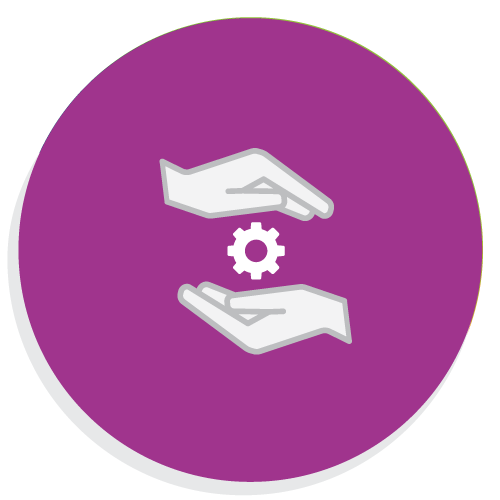  | A Quality Apprenticeship Toolkit: A practical perspective for Latin America and the Caribbean | LuxDev, ILO | 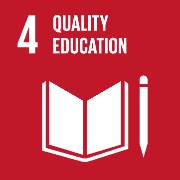 |
 | Youth-Led Labor Market Assessment Framework Guide | IREX | 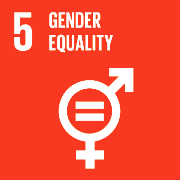 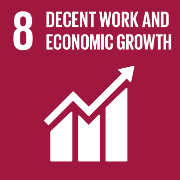 |
 | Guide on making TVET and skills development inclusive for all | ILO Skills and Employability Branch |    |
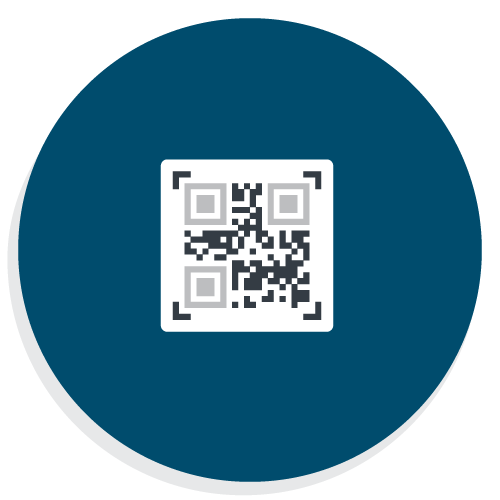  | Toolkit to benchmark the online learner experience: further education (FE) | Jisc Digital Experience Insights |  |
  | Toolkit to benchmark the online learner experience: higher education (HE) | Jisc Digital Experience Insights |  |
  | Collaborative Virtual Reality (CVR) Simulation Training | Institute of Technical Education, Singapore | 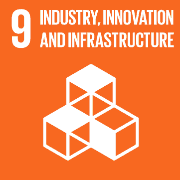 |
  | E-Dash to Success Diagnostic Curriculum Assessment Framework for Early Intervention of At-Risk Students | School of Electronics and Info-Comm Technology (SEIT) College West |  |
  | Mobile-Augmented Reality Dimension Kit in the construction sector | Civil Engineering Department, PSAS, Malaysia |    |
  | TVET delivery: providing innovative solutions (New Qualifications and Competencies for future-oriented TVET) - Volume 3 | UNESCO-UNEVOC |  |
  | Digitization of TVET and Skills Systems (The) | ILO, UNESCO |  |
  | Skills development and climate action plans: Enhancing TVET's contribution | UNESCO-UNEVOC |   |
  | Apprenticeship Benchmarking Tool | British Council |   |
  | Exploring Blended Learning Approaches for VET | Blend4VET, EU |  |
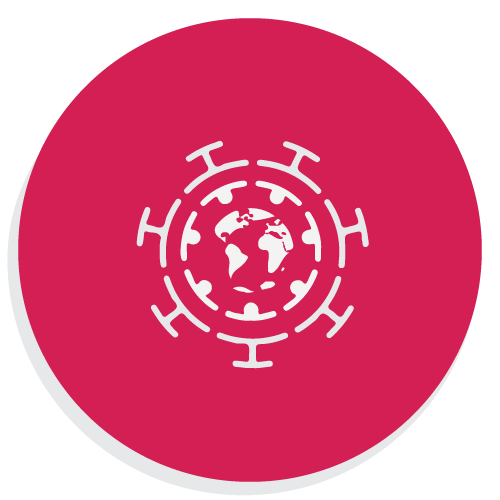  | Covid-19 Response Modular Toolkit | UNESCO, McKinsey |  |
  | Digital elevation tool (3-year strategy to elevate the UK further education and skills sectors) | JISC - UK |  |
  | Next Tourism Sector Skills Toolkit | Next Tourism Generation (NTG) |    |
  | Engendering ICT toolkit | World Bank Group |   |
  | Next Tourism Generation 360 degree skills matrix | Next Tourism Generation (NTG) |    |
 | EQAVET Indicators' Toolkit (European Quality Assurance in Vocational Education and Training) | EQAVET Secretariat - European Commission |  |
 | Engaging the Business Sector in Vocational Education and Training | DC dVet |  |
  | Entrepreneurship Toolkit (The): Successful Approaches to Fostering Entrepreneurship | USAID, Office of Economic Growth of EGAT |   |
  | Teach for Climate Action: An Advocacy Toolkit on Climate Change Education for Educators and Their Unions | Education International Asia-Pacific Region (EIAP) |   |
  | Technical and Vocational Education and Training (TVET) in times of COVID-19: Challenges and Opportunities for the Caribbean Region. Summary seminar #6 for the Caribbean | UNESCO (Santiago) | 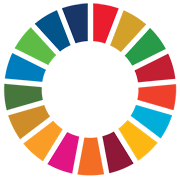 |
  | Supporting teachers and education personnel during times of crisis (UNESCO COVID-19 Education Sector Response) | UNESCO |  |
  | AI and Education: Guidance for Policy Makers | UNESCO |  |
  | Work-based Learning Toolkit | US Department of Education |  |
  | Tools for Quality Apprenticeships, A Guide for Enterprises | International Labour Organization |   |
  | Understanding the impact of artificial intelligence on skills development | UNESCO-UNEVOC |  |
  | Tools to support TVET policy makers and education providers to plan and deliver inclusive TVET provision for persons with disabilities | VET Toolbox Coordination Hub: Enabel, GIZ, British Council |   |
  | Apprenticeship Support: Delivering Apprenticeship Standards | Education and Training Foundation UK |   |
 | SME Performance Management Toolkit | International Labour Organization |   |
  | Dual Professional Toolkit | Education and Training Foundation UK |   |
  | Toolkit for Designing a Comprehensive Distance Learning Strategy | USAID Center for Education |  |
  | Quality Standards Checklists (QSCS) for Education Projects | People in Need |  |
  | Train the Trainers and Cascade Models toolkit | British Council |  |
  | Greening Technical and Vocational Education and Training: A practical guide for institutions | UNESCO-UNEVOC |  |
  | Digital pedagogy toolkit | JISC - UK |  |
  | Entrepreneurial learning for TVET institutions: Online guide (with worksheets) | UNESCO-UNEVOC |   |
  | Greening TVET and skills development: A practical guidance tool | ILO |  |
  | ILO Toolkit for Quality Apprenticeships - Vol. 2: Guide for Practitioners: For developing, implementing, monitoring and evaluating apprenticeship programmes | ILO |   |
 | Down to earth: A practitioner's guideline to work with business and industry in TVET | Deutsche Gesellschaft für Internationale Zusammenarbeit (GIZ) for countries in Asia |   |
  | Education in Emergencies Guide | People in Need |  |
 | Youth and gender analysis toolkit: Tools for Economic Growth Activities | USAID |   |
  | Planning the Use of AR/VR for TVET - A Practical Guide | Federal Institute for Vocational Education and Training (BIBB) |   |
  | Build4Skills Toolkit: Delivering return on investment through work-based training | Deutsche Gesellschaft für Internationale Zusammenarbeit (GIZ) |  |
 | New ways of building partnerships across sectors | Deutsche Gesellschaft für Internationale Zusammenarbeit (GIZ) |  |
 | Management of Education and Vocational Training Institutions: Training Manual to Identify Opportunities for Improvement in the Management of Education and Professional Training Institutions | LuxDev, PARISE Education and Innovation |   |
  | Tools to integrate gender considerations in Skills programmes | British Council (and partners in the UK, Colombia, Nigeria and South Africa) |   |
  | ILO Toolkit for Quality Apprenticeships - Vol. 1: Guide for Policy Makers | ILO |   |
  | Good Practice Guide: Improving Employment Opportunities Through Market Driven Vocational Education and Training | People in Need, Czech Republic |   |
 | Understanding the return on investment from TVET | UNESCO-UNEVOC and NCVER |   |
  | Recognizing international competencies for students in vocational education and training | Finnish National Agency for Education (oph.fi) |  |
  | Competency-Based Education via the DACUM and SCID Process | People in Need and Center on Education and Training for Employment (Ohio State University) |  |
  | Open Educational Resources (OER): Supporting Distance Learners | OER Africa and Saide |  |
  | Circular Jobs Monitor | Circle Economy & United Nations Environment Programme |  |
  | Guide: Improving Employment Through Market Driven Vocational Education and Training | People in Need |  |
  | DRIVES framework | Erasmus |  |
  | Fit for Industry 4.0 Innovative Learning and Teaching for Digitalization and Automation | Deutsche Gesellschaft für Internationale Zusammenarbeit (GIZ) |  |
  | Compendium of Tools for Labour Market Assessment | VET Toolbox Coordination Hub - Belgium |   |
  | Engagement of the agricultural private sector in vocational education | People in Need, Czech Republic and GeoWel Goal-Oriented Research |   |
 | TVET Promotion Toolkit | Deutsche Gesellschaft für Internationale Zusammenarbeit (GIZ) |  |
  | Open Educational Resources (OER) Toolkits Copyright and Licensing Toolkit | OER Africa and Saide |  |
 | Airtable - UN Innovation Publications | UN |  |
  | Open Educational Resources for Skills Development | UNESCO-UNEVOC |  |
  | EOppiva - Jotta jokainen voisi oppia (translated: eLearning - So that everyone could learn) | HAUS Development Centre Ltd. |  |
  | Toolkit: Learning and working in the informal economy | Deutsche Gesellschaft für Internationale Zusammenarbeit (GIZ) |    |
  |
Using Digital Solutions to Address Barriers to Female Entrepreneurship: A Toolkit
| World Bank Group |  |
  | Teaching TVET online: an online course | Commonwealth of Learning (CoL) and the Pacific Centre for Flexible and Open Learning for Development (PACFOLD) |  |
  | Toolkit on Agricultural Technical Vocational Education and Training: Stakeholder Engagement & Curriculum Development | African Union Development Agency and NEPAD |   |
  | Promoting quality in TVET using technology | UNESCO-UNEVOC |  |
  | VET toolkit for empowering NEETs: Source of support for young people not in education, employment or training | Cedefop |    |
  | Greening the Campus - A step-by-step guidebook for schools | Erasmus+ Green VET 4sdg partners from Malta, Spain, Greece and North Macedonia |  |
  | Regional TVET teacher standard for ASEAN | SEAMEO VOCTECH and GIZ |   |
  | Syllabuses of Digital Programs in TVET(2022) | Office of Academic Affairs of Shenzhen Polytechnic and UNESCO Chair on Digitalization in TVET at Shenzhen Polytechnic, China |  |
  | Soft Skills Project Design and Delivery Toolkit | British Council |  |
 | Post secondary education and training (PSET) preparation toolkit (for young adults with disability) | National Technical Assistance Center on Transition (NTACT) |  |
 | Handbook for Community Skills Development in Malawi: Selected management approaches for quality and demand-driven technical, entrepreneurial and vocational education and training | UNESCO-UNEVOC |  |
 | Handbook for Technical Colleges in Malawi: Selected management approaches for quality and demand-driven technical, entrepreneurial and vocational education and training | UNESCO-UNEVOC |   |
 | Technical and vocational education and training (TVET) Self-assessment Toolkit: Participant Manual | Commonwealth Secretariat |  |
  | Open Educational Resources (OER): Policy Review and Development Toolkit | OER Africa and Saide |  |
 | National Digital Transformation Strategy - mapping the digital journey | ITU, World Bank |    |
  | Digitalization of national TVET and skills systems: Harnessing technology to support LLL (Lifelong Learning) | ILO |    |
 | Digital Capabilities Framework: A Global Study on Digital Capabilities | World Bank Group |  |
  | Digital Transformation of TVET and Skills Development Systems in Africa: Guidelines for countries to undertake a strategic planning framework | UNESCO, The African Union and the African Union Development Agency (AUDA-NEPAD) through the Skills Initiative for Africa... |  |
  | Digital Skills Toolkit | International Telecommunications Union (ITU) |  |
  | Best Practices Guidelines and Toolkit on Engaging the Private Sector in Skills Development | UNDP, Istanbul International Center for Private Sector in Development, and SESRIC |  |
  | Quality toolbox for better TVET delivery: Practical instruments for TVET teachers and managers | Deutsche Gesellschaft für Internationale Zusammenarbeit (GIZ) for the ASEAN region |  |
  | Supporting the digital experience of new students in Further Education | JISC - UK |  |
  | Digi-VET | Prios Kompetanse (Co-funded by Erasmus+ programme of the EU) |  |
  | Improve Digital Competences of VET Teachers and Trainers (IDCVET) | IDCVET (Co-funded by Erasmus+ programme of the EU) |  |
  | VET toolkit for tackling early leaving | Cedefop |  |
  | WeRise Toolkit for Entrepreneurs | United Nations Women |  |
  | Worklinks Skills and Values Assessment | World Learning |    |
  | Youth Employment Evaluation Toolkit | Youth Impact project | 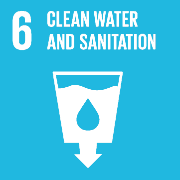   |
  | EU Selfie | European Commission (European Education Area) |   |
  | EU Selfie for Teachers | European Commission (European Education Area) |   |
  | EU Selfie Work-based Learning | European Commission (European Education Area) |  |
  | Guide for Implementing a Quality Assurance Institutional Review Tool for Blended Learning | Commonwealth of Learning (COL) |  |
  | Guide and assessment tool on the inclusiveness of TVET and skills development systems for all | ILO Skills and Employability Branch |  |
  | Guideline on how to Mainstream Inclusion of Marginalised People in Vocational Education and Training. | Deutsche Gesellschaft für Internationale Zusammenarbeit (GIZ) |  |
  | Next Tourism Generation Skills Assessment Methodology | Next Tourism Generation (NTG) |    |
  | Getting organised for better qualifications: A toolkit | European Training Foundation |  |
  | Self-Assessment Toolkit for Training InstItutions | British Council |  |
 | Innovating technical and vocational education and training | UNESCO-UNEVOC |   |
  | Inclusion of Refugees in TVET: Self-Assessment Tool | British Council |  |
  | Training manual on greening TVET | Colombo Plan Staff College |  |
  | Open Educational Resources (OER) Toolkit: Course Design and Materials Development Guide | OER Africa and Saide |  |
  | Gender-responsive education: Toolkit for Teachers, Teacher Educators, School Managers and Curriculum Developers in Africa | UNESCO-IICBA |   |
  | Digital Teacher (The) | UNESCO & MGIEP |  |
  | Careers Advice Toolkit | WorldSkills UK and The Careers & Enterprise Company |  |
  | GSMA Mobile Internet Skills Training Toolkit (MISTT) | GSMA |   |
 | Integrating Migration into Education Interventions | International Organization for Migration (IOM) |   |
 | Advancing green human capital – a policy analysis framework | UNESCO, UNEVOC, ILO, and French partners |    |
  | Teleworking during the COVID-19 pandemic and beyond: a practical guide | International Labour Organization. Inclusive Labour Markets, Labour Relations and Working Conditions Branch |  |
  | Comparative overviews: Initiatives on furthering entrepreneurial competences through non-formal learning in EU Member States | European Commission |   |
  | Decent Work Toolbox | VET Toolbox |   |
  | Practical Guide for increasing girls' and women's participation in STEM-TVET | COL and CAPA-ATUPA |   |
  | Developing skills programming through a gender lens | British Council |   |
  | National qualifications frameworks (NQF) online tool | Cedefop |   |
  | Breaking Barriers, Building Successful Businesses: A Gender Inclusivity Toolkit for Young Entrepreneurs | UNDP |    |
  | TVET Professional Development Toolkit for the Pacific | Commonwealth of Learning (COL) |   |
  | Employment map | Fundación Telefónica |   |
  | Addressing skills mismatching in the green sector through digital upskilling of VET | ADDUPT |  |
  | OER Policy Development Tool | BC Campus, Institute for Open Leadership |  |

